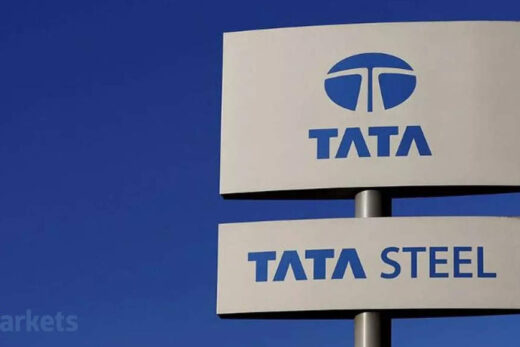Your portfolio has a good mix of mostly large and some midcaps. But on a blended basis, for FY22-23, what is the outlook on earnings?
The one-year EPS growth that we are looking at from this portfolio is around 36% while for Nifty, it is around 19%. In terms of the earnings growth, it is well placed. We have a mix of large and midcaps but more with a largecap bias because there are still a lot of opportunities in the largecap space. In the last two or three weeks, midcap stocks have started falling and still the market was participating and moving higher.
So what has participated right now is more of the value stocks — the telecom stocks which were not participating for long and the capital goods stocks, which have not participated for the last 10 to 12 years. We have not seen that kind of move coming back in capital goods but it is a very strong tailwind which is going to happen now because the government is also spending a lot of money that is coming back and then the corporate linked banks. One needs to put them in the value category right now because vis-à-vis the other stocks in the market or sectors, there is still room. Bank Nifty has not broken out above 38,000 and there is a room.
Likewise, the market has a lot of buckets which have not participated and this is the reason this market is very interesting from here onwards. The midcaps have come down because the earnings yield of midcaps, which was around 3.8%, having fallen from 5%. It had to happen at a certain point of time, one could have seen the profit booking which is happening now. But still one cannot leave the market because there are opportunities and this is where the ACE equity PMS has mingled growth along with value. So when I say the high EPS growth, it is part of the portfolio with around 45% to 50%.
The other important component consists of the rerating sectors because we are coming out of a pandemic and many sectors are seeing a structural change. For example, look at IT. They have already crossed the buyback prices recently and the order book has been very strong. Not only is it coming from BFSI, it is coming from life sciences and retail as well.
In Infosys or TCS, we are seeing 20% growth in all of these segments. Retail has also come up because Europe, which is more of a service oriented economy, actually has seen the PMI of services going beyond 60%. The retail category is also booming. These things are coming into the IT space and they are venturing into the digital technologies where the margins are much better. Internet of Things (IoT), artificial intelligence (AI), the 5G block chain are areas which can come up further for these stocks. It is just a matter of time.
In case of some profit booking, these stocks can be brought into the portfolio and that is exactly what we are also doing.
APIs or chemicals in the context of China plus one strategy is very much part of our portfolio. We are not saying that the whole business from China has come to India. Even if 10% of that business comes to India, our API exports will go up from $3.5 billion to $7 billion. We are seeing good order inflows. The government is also providing PLI benefits for the APIs. This is another push and these sectors together account for 75% of our portfolio.
What is the outlook on these two pockets – private sector banks and large engineering companies?
During Covid 2.0, we saw that mobility was reduced though it was more a case of regional lockdowns but the capital goods production was at one-year high. So whether it is construction in the remote areas or rural areas, that was still on. So this is where growth is coming. In the case of L&T, things are happening better. It has one of the best balance sheets I have seen in stocks because their working capital to sales has already reduced from 24.5% to 22.5%, debt to equity is declining and the best part is they are selling the non-core assets.
For example, they have sold this automation business to Schneider. Now they are selling to Rolls Royce in the UK. They are selling the power plant in Punjab. The other business which was denting them was the metro business in Hyderabad. They have already provisioned Rs 2,000 crore there and now they are well positioned to start from here because in the last three years, the market cap of L&T remained at around Rs 1,80,000 crore.
L&T’s IT companies were performing better, but now we need to focus on core engineering again as it should start picking up from here.
In the case of banking, two segments have been impacted more in the last one year; retail and SMEs. It is better now. Now the corporate NPA cycle is very much behind us. We have seen that out of the total corporate book, 85% is already provisioned which is very encouraging for these banks. The slippage rate was declining in FY21, but in the last quarter because of the regional lockdowns we saw an increase in net NPA by around 30-40 bps. The important point here is the collection efficiency which had moved to 98%, has again declined to 84% in the last quarter. But now it is improving. SBI has announced Rs 4,800 crore of recovery in July out of the total NPA of Rs 6,343 crore. That is very encouraging and looking at the current valuations of 1.3 times FY23 adjusted price to book, SBI looks very attractive. We should start looking at these corporate linked banks.
What are some of your midcap ideas? I want to understand the businesses which you are bullish on as far as the midcap end of the basket is concerned.
The chemical space is one area where we do not have largecaps. Obviously, one has to focus more on the midcaps there and one needs to understand the valuation part also because some of them have already moved up.
We still have PI Industries and SRF in our portfolio because of the kind of growth we have seen. Earlier, all the ACs were going to Vietnam to get assembled and filled with AC gas. Now the government has put a ban. The government says it has to be assembled in India and this is where the companies which are providers of fluorochemical or refrigerant gases, suddenly find their market share increasing. This is a tough market in terms of margins because commodity inflation is higher. In Q1 of FY22, we have seen many companies’ margins getting hit. So we have to look at this market.



